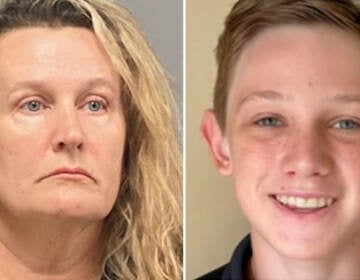Activists rally for changes to Pa. child custody laws
The efforts of the group, known as the National Parents Organization, have inspired fierce opposition from domestic violence organizations.

Pennsylvania's Capitol building in Harrisburg (WikiMedia Commons)
A coalition of advocates is trying to get Pennsylvania lawmakers to act on what they’re calling a “horrific parental alienation crisis.”
The term “parental alienation” generally refers to a situation in which a custody agreement largely separates a parent and child, straining their relationship. Specifically, proponents of the term say, it involves one parent using access to a child to turn the child’s allegiance away from the other parent.
The efforts of the group, known as the National Parents Organization, have inspired fierce opposition from domestic violence organizations. There is also a general lack of consensus on whether parental alienation is a legitimate syndrome in children.
It is not recognized in the Diagnostic and Statistical Manual of Mental Disorders.
Pennsylvania’s chapter of the National Parents Organization — which until a few years ago was known as Families and Fathers — is pushing for two bills.
One would update the Commonwealth’s custody law to let a court order make up time if one parent violates the custody agreement.
The other would make 50/50 custody agreements the default in contested cases.
Under the proposal, in order to fight that default, a couple would essentially go through a criminal trial.
The defendant in the case would be “presumed innocent,” said Stephen Meehan, state chairman of the National Parents Organization. “The burden lies on the prosecutor.”
The bill “would make it much more difficult to have a full custody order,” said Meehan, adding that arrangement is, in most cases, much better for the child.
The executive director of the Pennsylvania Coalition Against Domestic Violence Executive said she is concerned about the impact of that measure in particular, especially when it comes to instances of spousal abuse.
“It’s trying to level a playing field that may not be level, and so it’s sort of artificial,” said Susan Higginbotham. “Our concern, in general, about these kinds of things is it would set a new precedent around how to look at custody cases in a way that would probably be disadvantageous for a parent who is the victim of domestic violence.”
There’s little consensus that the effort is based on sound evidence, she said.
The concept of parental alienation, Higginbotham said, has “met with opposition from psychological and social workers, family and juvenile court, bar associations, child advocacy.”
The two measures in question haven’t gotten much political traction — though they saw renewed attention late last year following a committee hearing on parental alienation.
WHYY is your source for fact-based, in-depth journalism and information. As a nonprofit organization, we rely on financial support from readers like you. Please give today.





